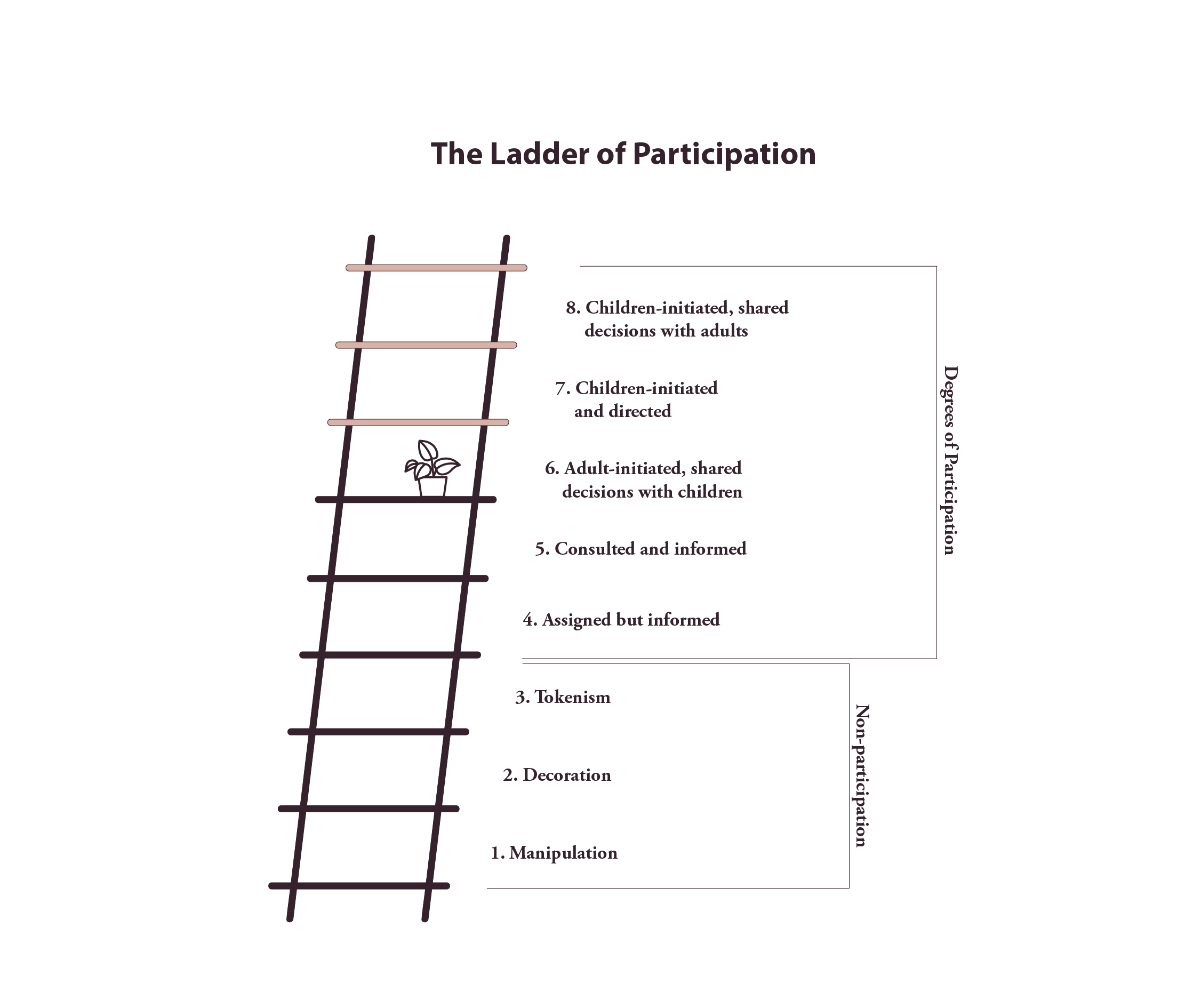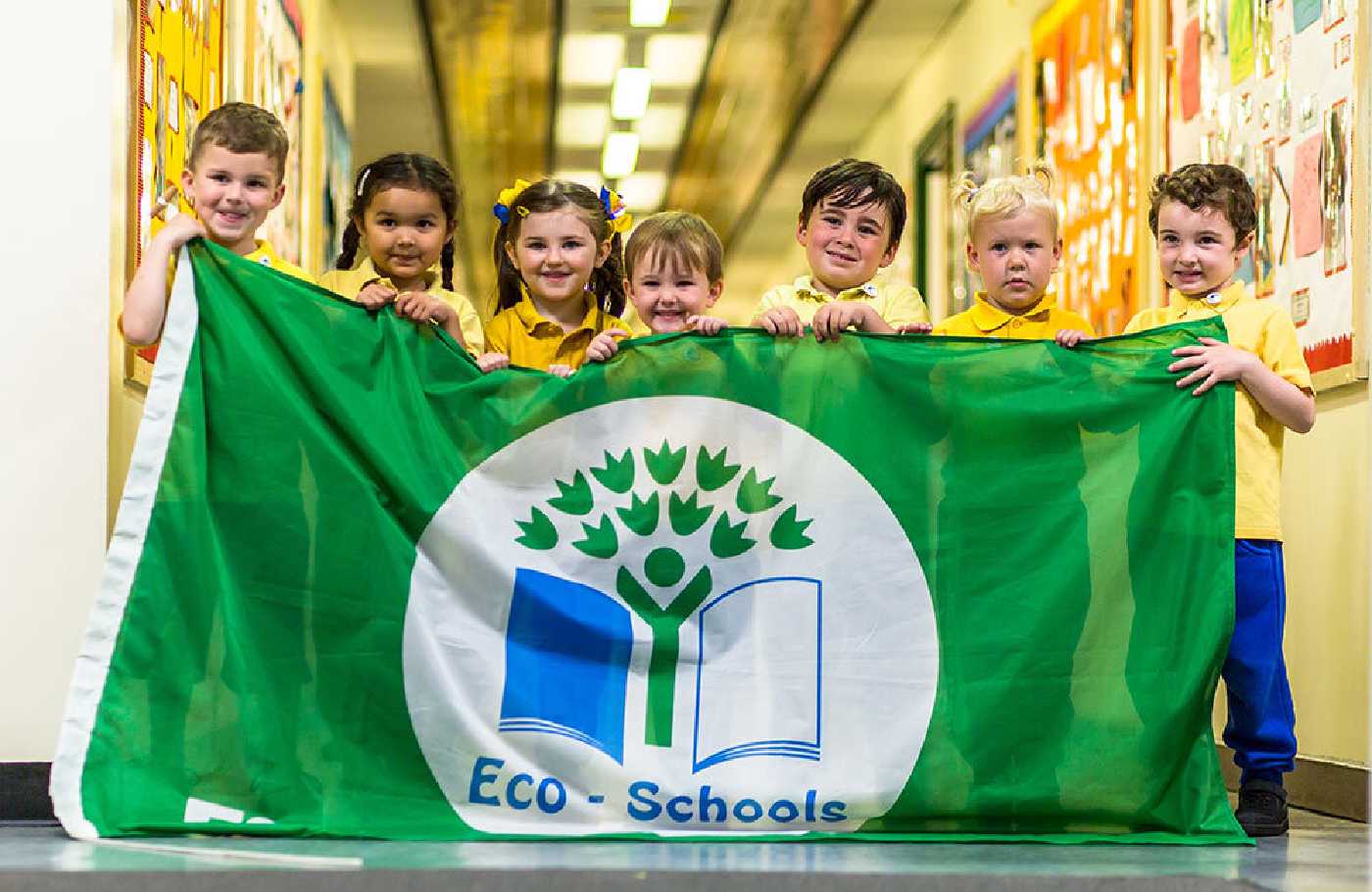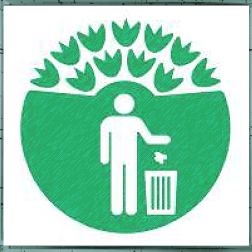Eco-Schools In Poland
The program is addressed to schools, pre-schools, childcare facilities and local communities throughout Poland. Its goal is to involve Schools for Ecodevelopment Program participants and partners in educational action for sustainable development as well as engaging local communities in environmental protection, and advancing environmental awareness. Almost 159 000 schools from 74 countries all over the world partake in the program.

It All Starts within a School Class
Eco-Schools is an international program that encourages young people to take active part in environmental protection. It all starts within a school class to later cover the whole school and to finally facilitate positive changes in the entire community. Owing to the Eco-Schools program young people see the positive effects of their own actions in practice, which contributes to the way the environment is managed. It is an ideal way for schools to take steps that improve the state of the environment both in school and in the local community. Not only students and the school staff engage in the initiatives that constitute part of the Eco-School program, but their families and the local authorities are involved as well. Their collective efforts culminate in certification and prestige, which emerges when the institution is awarded a Green Flag – an internationally recognized certificate.

Involvement
The Eco-Schools program gets involved not only students, teachers and the entire school community, but also families, the local community and the local authorities.
Changes for the Better
The Eco-Schools program is an ideal way to take action heading towards diminishing the ecological footprint. The actions carried out as part of the program lead to creating a sustainable and responsible school environment.
Motivation
The Eco-Schools program sets challenges to take action, whose purpose is to address the environmental problems in one’s own surroundings. Owing to the action taken as well as the achievement of the determined goals students gain a sense of having real impact on the changes that occur.
Attitude
The Eco-Schools program instills in students a sense of responsibility for the sustainable development in their environment. It lends an opportunity to engage personally and actively in the steps that are taken as well as promoting pro-ecological practices in the local community.
Engaging the Local Community
The Eco-Schools program places special emphasis on engaging the local community. Educational activities carried out by students are not restricted to the school environment but reach out to the local community, which impacts promoting sustainable, environmentally-friendly behavior models.
Global Network
The Eco-Schools program provides an opportunity to start a cooperation between the institutions involved, not only nationwide but also internationally. For schools it is a chance to both share their experience with environmental protection, but also a way to get to know other cultures and enhance foreign language skills.
To introduce and implement the program, the school defines the thematic area. For instance, it can be:
Food

Working with the topic is to encourage students to consider the impact that agriculture, food production and consumption have on the natural environment and the welfare of communities inhabiting the whole world (e.g. the problem of starvation around the world). Action taken in this area should bring about changes in consumers’ behaviors and attitudes that would be oriented on sustainable food production and consumption.
Sample issues to cover as part of the “Food” topic:
- Food waste,
- Production and consumption of animal products (meat, dairy and eggs),
- Palm oil and highly processed foods,
- Seasonality and locality of products,
- food biodiversity,
- social responsibility in food production.
Waste

The subject aims to encourage promoting of the 4R perspective: (refuse, reduce, reuse, recycle); special emphasis should be placed on “refuse” and “reduce”. Action taken in this area should bring about changes in consumer behaviors and attitudes oriented on decreasing the amount of waste as a result of reduction of one’s own consumption.
Biodiversity and nature

Action taken in this field should bring about changes in behaviors and attitudes heading towards appreciation of every form of animate and inanimate nature as part of a larger entity, without which the whole system is unable to function harmoniously, which is why it should be treated with due respect and be subject to protection. The action taken is to contribute to biodiversity growth in the close neighborhood (school premises, the garden) as well as affecting the rise of students’ awareness of biodiversity and nature that surrounds us.
The risk related to the program implementation should be considered focusing on teachers – who are project coordinators at school and on children – program beneficiaries. As far as teachers are concerned, the risk relates to the fact that program implementation relies on volunteer work, which increases the general workload. There might be insufficient time for program implementation due to numerous regular obligatory duties.
As far as students are concerned, the risk is connected to, for instance, a possible lockdown. It also pertains to lack of visible environmental changes at school and its direct proximity, which Students might find disheartening.
Program implementation allows for enhancement of both students’ and teachers’ competences referring to ability to diagnose school environmental problems as well as those occurring in the neighborhood, collaboration inside school, class group and with the local community and the authorities.
The program allows for a tighter collaboration between the school, the local community and the authorities. The local community and the local government might engage in, e.g. electro-waste collection or in the distribution of tree saplings.